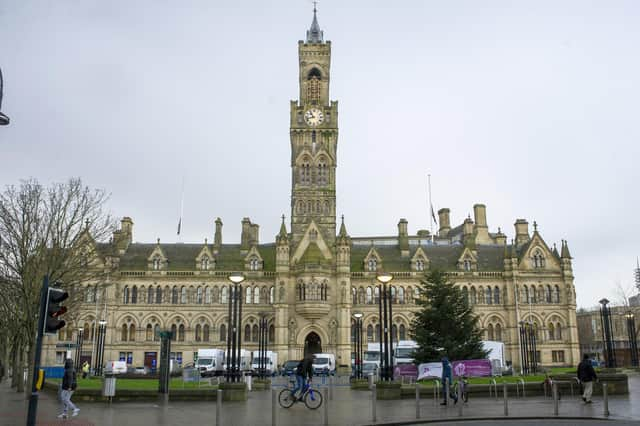What Yorkshire cities and towns need after the pandemic - Baroness Lane-Fox


These were the words of Coun Susan Hinchcliffe, leader of Bradford Metropolitan District Council, giving evidence to the Covid-19 Committee’s inquiry into the pandemic’s impact on towns and cities. Yesterday, we published our report – Towns and Cities: Local Power is the Path to Recovery.
As Coun Hinchcliffe emphasised, towns and cities are fundamental to our wellbeing – as individuals, communities, and as a nation. After all, it is towns and cities that provide many, if not most, of us with the building blocks for our lives – housing, public transport, green spaces, workspaces, public services and leisure opportunities. If towns and cities become dilapidated, with poor housing and green spaces, limited public transport, public services, and leisure opportunities, it is inevitable that our individual and collective wellbeing will suffer.
Advertisement
Hide AdAdvertisement
Hide AdTowns and cities are at the very heart of our country, representing approximately 60 per cent of the economy, on a jobs and output measure, and being home to approximately 55 per cent of us.
This is why we decided to concentrate on the impact of the pandemic on our towns and cities, and specifically on larger towns and smaller cities – defined as cities outside London and the 11 core cities of Belfast, Birmingham, Bristol, Cardiff, Glasgow, Leeds, Liverpool, Manchester, Newcastle, Nottingham and Sheffield. Many towns and cities were already struggling before the Covid-19 pandemic, with towns such as Stoke on Trent and Blackpool losing 20 per cent of their shops between 2013-2018, and cities, such as Sheffield and Southampton, losing 17.8 per cent and 15.8 per cent of their shops, respectively.
This decline in our towns and cities has been severely exacerbated by the Covid19 pandemic – increasing home working, increasing online shopping, and increasing online provision of essential services, as well as decreasing footfall and decreasing use of public transport – risk the future of our towns and cities. The seismic changes in our everyday behaviour, brought about by the pandemic, means that we must reimagine the towns and cities of the future.
Any attempt to revert to business as usual in towns and cities after the pandemic is likely to be like trying to stop the tide. Rather than looking backwards, we must all– central government, local authorities, businesses and residents – look forwards and work together to recreate our towns and cities into the vibrant places that they can, and should, be. Underlying our proposals for the future of towns and cities is a need to empower town and city leadership.
Advertisement
Hide AdAdvertisement
Hide AdWe want to see the Government outlining, in its Levelling Up White Paper, its plans for further financial and legislative devolution of powers, to enable local authority leaders to deliver regeneration policies tailored to the needs of their specific areas.
We believe that the pandemic provides the perfect opportunity to reconsider the current business rates system, and explore the potential for introducing a new hypothecated online sales tax, paid by the consumer, to balance decreasing revenue from business rates.
Finally, we want the Government to replace the current annual local government settlement, with a three-year rolling local government financial settlement, at an increased level.
Our most successful towns and cities have a strong blend of housing, retail, workplaces and leisure opportunities. To bring about this blended approach, and to increase vibrancy, in all our towns and cities, we want to see the Government providing financial support to local authority leaders to enable the establishment of work hubs, pop-up retail units and expand the arts and culture provision in our towns and cities.
Advertisement
Hide AdAdvertisement
Hide AdWe also want to see the Government working with local authorities to ensure that regeneration, and investment, is not only concentrated on town and city centres, but also on improving housing, public services, public transport and green spaces, in those neighbourhoods that risk being left behind.
Lastly, we want to see tackling inequalities at the heart of local authorities’ regeneration plans, with them developing a method for actively engaging with the different groups, communities and neighbourhoods, and ensuring that these views are acted upon in developing their regeneration plans.
Beyond just listening to different groups, communities and neighbourhoods, we believe that local authorities should develop a process for mainstreaming the consideration of inequalities when assessing proposals for improving housing, green spaces, public transport provision and public services, and ensuring that the views, and needs, of specific groups and communities are at the heart of the decision-making process.
Baroness Martha Lane-Fox of Soho is a Crossbench Life Peer and Chair of the Covid-19 Committee.
Comment Guidelines
National World encourages reader discussion on our stories. User feedback, insights and back-and-forth exchanges add a rich layer of context to reporting. Please review our Community Guidelines before commenting.